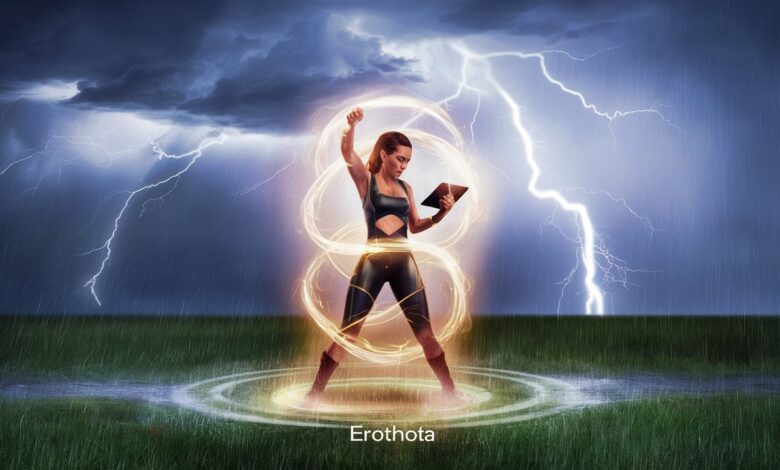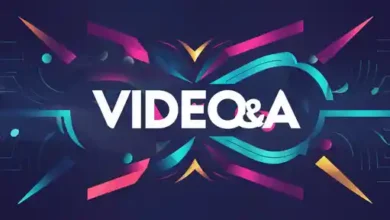What Is Erothota? Exploring the Mysterious Term Taking the Internet by Storm

In today’s fast-paced digital world, new words and trends seem to emerge out of nowhere, often sparking global curiosity almost overnight. One such term that has recently grabbed the attention of internet users around the globe is “Erothota.” If you’ve stumbled across this term in a comment section, a trending post, or a mysterious message, you’re not alone. Many people are asking: What does Erothota mean? Where did it come from? Is it real or just a made-up viral trend? In this article, we’ll dive deep into everything we know (and don’t know) about Erothota, including its origin, possible meanings, cultural impact, and why it’s trending across multiple online platforms.
📖 The Origin and Possible Meaning of Erothota
The word “Erothota” doesn’t have an established definition in any major language, dictionary, or academic resource. This lack of official meaning is precisely what makes it so fascinating to the online community. There are a few competing theories regarding where it originated. Some speculate it might be a corrupted version or phonetic rendering of a phrase from another language, perhaps ancient Greek or a blend of romantic languages. Others believe it’s a coined term, generated either by a content creator, artist, or an AI experiment that unexpectedly went viral. Still, a subset of users suggests that it may have originated as a codename or username on niche online forums—such as those focused on digital art, underground music, or speculative fiction—which later gained traction and mysterious appeal.
Due to this ambiguity, “Erothota” has taken on an almost mythological status in certain circles. Similar to how slang terms like “yeet” or coded names like “QAnon” started obscure but became cultural symbols, Erothota could be on the verge of becoming the next enigmatic internet buzzword. Its untraceable origin adds to its appeal, creating an aura of exclusivity and mystery.
🌐 Why Is Erothota Trending Online?
The term “Erothota” has started appearing across multiple social media platforms, including Twitter (now X), Reddit, TikTok, and Instagram. In some posts, it’s used in cryptic messages or aesthetic content, often without context, which only fuels the public’s curiosity. Some users claim that Erothota is linked to secret communities or artistic projects, while others have spun theories connecting it to alternate reality games (ARGs) or digital storytelling experiments.
One common strategy among online creators is using vague, mysterious keywords like Erothota to drive intrigue and engagement. Because the word has no immediate or official meaning, people become more likely to search for it, comment about it, or theorize around it. This user-generated buzz creates a cycle that boosts the term’s visibility in search engines and social media algorithms, effectively making Erothota trend harder with each passing day.
Another possibility is that the word is part of a marketing campaign for a product, game, or series yet to be revealed. The viral rise of cryptic terms is often a precursor to the launch of new media—such as indie films, virtual reality games, or NFT projects. In that sense, “Erothota” might be an early signal, carefully planted to generate speculation and excitement.
🧠 Cultural Significance and Interpretations of Erothota
What’s intriguing is how different communities interpret the word “Erothota.” In artistic communities, especially on platforms like DeviantArt or Tumblr, Erothota has been used as a name for fictional characters, universes, or poetic expressions. The mysterious quality of the word gives it flexibility—it can be shaped to suit emotional, symbolic, or narrative needs. In more philosophical or existential discussions, some users have interpreted Erothota as a metaphor for the unknown, representing things we can feel but not explain.
Even though there is no factual basis for these interpretations, the open-endedness of the word allows for personal and collective exploration. It’s become a linguistic “mirror” of sorts, reflecting whatever people want to see in it. This makes Erothota not just a word, but a cultural experiment in meaning-making—something that aligns perfectly with the decentralized nature of internet culture today.
🧩 Is Erothota Real or Just Another Internet Hoax?
Given the mysterious rise of Erothota, it’s fair to ask whether the whole thing is just a cleverly designed hoax. Some skeptics argue that it’s nothing more than a meme, a trend without substance that will fade away once the next viral curiosity comes along. Others suspect that it may have been engineered by AI content farms to flood social platforms with high-engagement posts. There’s also the idea that it might be part of a social experiment, aimed at observing how quickly meaningless data can become meaningful in the age of viral content.
However, whether real or not, the effect of Erothota is undeniable. It has sparked global discussion, creativity, and speculation. That, in itself, gives the term a certain kind of reality. Like many other internet-born phenomena, Erothota exists because people are talking about it. Its “realness” is defined not by dictionary entries or etymology but by digital momentum and cultural relevance.
🧾 Conclusion:
“Erothota” may have started as a word without meaning, but it has evolved into something much more significant: a symbol of how modern internet culture can take anything—no matter how mysterious or meaningless—and give it value through collective imagination. Whether it’s an artistic experiment, a viral prank, or a cryptic clue to something bigger, Erothota represents the power of language in the digital age. In a world where content is king, and curiosity is currency, Erothota reminds us that mystery is one of the strongest forces of all. As it continues to trend and provoke conversation, only time will reveal its true purpose—or perhaps, its lack thereof.
❓ Frequently Asked Questions (FAQ)
Q1: What does Erothota mean?
There is no official definition of “Erothota.” It appears to be a coined or fabricated term that has gained attention online due to its mysterious nature.
Q2: Is Erothota a real word in any language?
No, “Erothota” is not recognized in any known language, including English, Greek, or Latin. It may be invented or derived from online content.
Q3: Where did Erothota originate?
The exact origin is unclear. Some speculate it began on niche forums or as part of a digital project. Others think it might be tied to an ARG or viral marketing campaign.
Q4: Why is Erothota trending on social media?
Erothota is trending due to its ambiguous meaning, widespread curiosity, and its use in cryptic or aesthetic posts across platforms like Reddit, TikTok, and Instagram.
Q5: Could Erothota be part of a larger mystery or story?
Possibly. The term has been linked to theories involving digital storytelling, ARGs (alternate reality games), and underground media campaigns.



